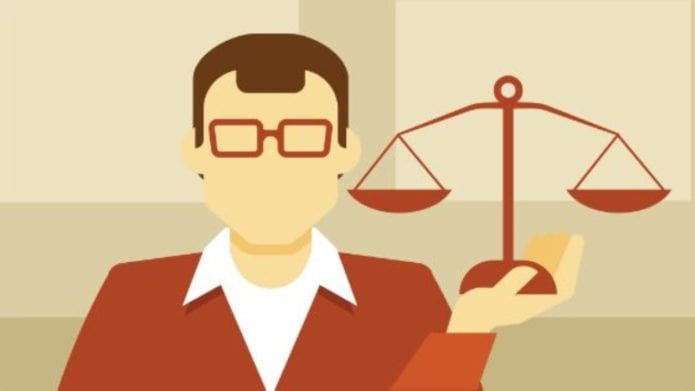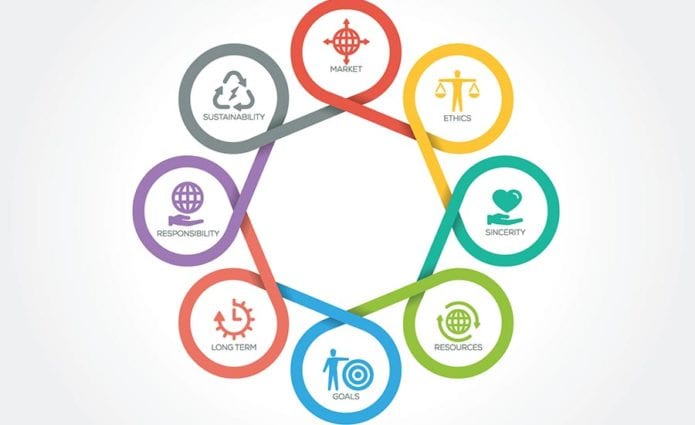
When it comes to ethical behavior in a corporate environment, today’s leaders are faced with challenges far beyond what they expected when taking the position. Business ethics aren’t always in line with personal ethics, as they soon learn, and this can create tension on several levels. If you are a team leader, a department supervisor, or even a company director, you have probably come across more than a few ‘ethical issues’ which aren’t entirely as cut and dry as you would expect.
If you have been faced with a problem in which you were hard-pressed to find an ethical solution, you are not alone. However, if you begin by understanding the difference between business ethics and personal ethics, issues may be easier to resolve.
Personal Ethics vs. Business Ethics

You might be thinking there shouldn’t be a difference between ethical behavior in the workplace and ethical behavior in your private life. To some extent, this is true. Unfortunately, there’s that grey area so many people have trouble dealing with. You might be thinking that doing the right thing is always legal, but in fact, that’s not precisely real some of the time. While laws are based on a moral compass and ethics defines the moral good, some rules can be easily broken when trying to do ‘the right thing.’
Take whistleblowers, for example. Perhaps a company isn’t acting morally or responsibly, in your opinion. Even so, they are within the confines of the law and have broken none, but you feel they have acted unethically as far as consumers or the public at large is concerned. So, you contact a news outlet and divulge what you have learned and your opinion of how this is morally wrong. Have you acted unethically? Have you broken any laws?
Your employer hasn’t broken any laws, but you might have! Also, you may have acted unethically as well in trying to do the right thing. If you signed a contract upon employment not to divulge company information for dissemination to the public or competitors, you have both broken the law (contract law) and acted unethically in business. Perhaps on a personal level, you feel you have done the right thing, but by breaking an agreement, you have stepped into that dreaded grey area between right and wrong.
What Is Ethical Business Behavior?

As you have seen by the example above, ethical business behavior may differ from how you might act on a personal level. Again, while laws are based on what a given society feels to be ethical or moral, not all laws meet your criteria for what is noble within your moral compass. Sometimes your religion or faith dictates how you should act, and other times a more humanistic approach governs your moral compass.
If business ethics differ from personal ethics, how are you to know what is right and what is wrong when you are acting in a leadership role representing your place of employment? That can be a bit complicated, but the good news is that there are courses you can take for a better understanding of ethics in both the personal and corporate realm.
These courses can be found on sites like findcourses.com ethics where you’ll find classes listed like:
- Leadership Ethics
- Sales Ethics
- Business Ethics for the Office
- Ethical Practice: Applying Ethics to Business Operations
And, so forth. Ethics training is something every leader at any level should study for a better understanding of how to apply ethics in the workplace.
Corporate and Social Responsibility

One of the significant issues facing today’s businesses is in the area of social responsibility. That can be seen in such things as the general public’s perception of such things as corporate waste and unethical labor practices. It only takes browsing social media to see the public’s perception of companies that outsource to countries that still allow child labor and working conditions or hours now made illegal in the west.
Here again, it isn’t illegal to outsource jobs to third world countries where working conditions are horrendous, so it isn’t precisely unethical from a legal perspective. However, from a social perspective, it is an unethical business practice that, if made public, could soon lead to the demise of a company. That is where ethics training plays a vital role in today’s corporate leaders, especially those who manage a workforce.
Corporate and social responsibility are not always mutually exclusive, but for those corporations seeking to increase their profit margin drastically, social responsibility can come second to profitability. That is something many leaders are not prepared to deal with, and again, ethics training can help upper management find solutions acceptable to their corporate bottom line and the consumers they serve.
Respecting Diversity in the Workplace

In today’s economy, most companies hire a diverse workforce. It is illegal to discriminate on the grounds of race, creed, age, color, and so on. Does this mean that such diversity is always embraced on a corporate level? Some companies, for example, allow holidays like Christmas or Hanukah but aren’t quite as accepting of Ramadan. Perhaps Ramadan is respected, but Passover not so much. It is imperative to appreciate the diversity of cultures in today’s workforce beyond what follows the letter of the law.
That has been a significant issue among employees who want “equal rights” when it comes to respecting their cultural days and customs. Another example might be women wearing head coverings, as is their cultural requirement. In matters legal and ethical, it is essential to find a way to respect all people from all cultures as carefully as possible without interfering with company policies or practices. While a boss can appreciate the fact that a worker is required to pray at certain times of the day, it would be impractical to halt a production line in many cases.
The Key to Ethical Practices in the Workplace

Ethical practices in the workplace are always determined by the rules that govern leadership. Therefore, the best way to ensure ethical practices in the workplace is to set high standards in upper-level management and adhere to those policies. If you expect department heads and team leaders to observe business ethics, it is imperative to model those behaviors and standards as well.
For a better understanding of the differences between social and business ethics, it may be to your advantage to take one of the courses mentioned above. Some newer administrators aren’t quite sure of the differences between legal and ethical obligations, and this could create an undue amount of tension for them as well as for those working for and with them.
While laws are based on ethical norms within a society, all requirements are not always seen as moral. If asked to choose between the law and your conscience, how would you choose? That is a significant issue for leadership in today’s corporate environment, and once again, ethics training could provide the answers you seek. The one constant in all this is that consumers expect socially responsible, ethical practices in the businesses they deal with, so it is to your advantage to have a working knowledge of business ethics as it pertains to you.











